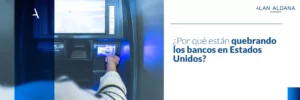Corruption is defined as the abuse of entrusted power for personal gain, according to the non-governmental organization Transparency International, which measures the perception of corruption in the public sector in certain countries. It can be categorized as a harmful, diverse and global socio-economic phenomenon that undermines the foundations of a society and can include a wide range of activities and networks that operate within institutions of great relevance to the functioning of a nation.
Among the wide range of actions that can be identified as corrupt are the following CORRUPTION -BETWEEN INDIVIDUALS, PROPER AND IMPROPER, QUALIFIED, INDUCTION-, PECULATION, MALVERSATION, TENDER AVOIDANCE, BUDGET OVERRUN, CONCUSSION, USE OF RESERVED INFORMATION, ABUSE OF AUTHORITY, ILLEGAL EXACTIONS, CONTRACT WITH CONTRACTORS, INFLUENCE TRAFFICKING, PROFIT IN ADMINISTRATIVE ACTS, ILLICIT ENRICHMENT, ASSUMPTION OF VALUE, TRANSNATIONAL BULLYING, OMISSION OF PRONOUNCEMENT, DOLOUS DELAY OF JURISDICTIONAL PROCESS, among other criminal offenses.
The beginning of corruption
Corruption is not an evil exclusive to a particular nation or region.. It can begin with small acts by citizens such as paying bribes to police officers to avoid fines, or using agents to facilitate the obtaining of official documentation necessary for various civil procedures. On a large scale it manifests itself in "grand corruption", categorized as the diversion of funds belonging to a State for the illegal and personal use of an individual or a group of individuals. It is highly costly in terms of money and damage inflicted. to human rights. It is in this type of corruption, above all, that Latin America has much to tell and transcend, according to statistics and expert analysis.
Latin American lands are highly rich in terms of natural resources and raw material extraction. for countless products of use to humanity. However, the practices to manage this patrimony have not been adjusted to the legal requirements to avoid the scourge of corruption. It seems that the laws applied have not been effective enough to prevent this crime that ends up impacting all the inhabitants of a country, since the diversion of funds deprives them of improvements in their quality of life that governments should guarantee in areas such as health, education, housing, transportation, among others.
Although the actual cost of this crime is difficult to quantifyGlobal Financial Integrity calculated that Latin America lost the equivalent of 3% of its Gross Domestic Product to corruption between 2003 and 2012. This problem was among the four circumstances that most affected the population of 18 countries in the region, according to the Latinobarómetro survey conducted in 2017
The most recent statistics are no more encouraging. The panorama seems to indicate that despite some efforts, the region is not making progress in the battle against corruption. The Corruption Perception Index in the region has remained at 44 out of 100 for three consecutive years. This study is conducted by the non-governmental organization Transparency International, and measures on a scale of 0 to 100 (100 representing the absence of corruption) the perception of corruption in the public sector in a given country.
The figures obtained in Latin America are very similar to those recorded in Asia Pacific.. Canada is the country with the highest score in the index, followed by the United States of America and Uruguay. For its part, Venezuela registered one of the lowest scores in the region by obtaining 18 points, while Haiti reached 20 points and Nicaragua 25. This figure, according to the organization "reflects the systematic and persistent corruption in Venezuela".
For Transparency International, the reasons for these low indexes are related to the rise of populist leaderships that have to take the following measures:
- I block free and independent media.
- Control and silencing of civil society and non-governmental organizations.
- Weakening of the judicial system and increase in executive power.
- Undermining of democratic guarantees.
Some countries in the region have shown significant growth in this area. Such is the case of Ecuador and El Salvador with 34 and 35 points respectively, which have increased their previous record by 2 points. Similarly, Argentina has registered a consecutive increase in the last 4 years. A common denominator in these nations has been the interest of their governments in promoting investigations and prosecution of corruption cases committed by high-level officials.
One of the most notorious and important corruption cases of recent yearsIn terms of the large number of countries in the region involved, it was the scandal involving the Brazilian construction company Odebrecht, for which the former president of Brazil, Lula Da Silva, was also prosecuted. The Odebrecht case is the largest foreign bribery case in history, according to the U.S. Department of Justice, due to the fact that the company paid hundreds of millions of dollars in bribes to be awarded large infrastructure works in several countries.
Transparency International recommends the following measures to stop and prevent corruption in Latin America:
- Defend the democratic system and anti-corruption laws.
- Strengthen the institutions responsible for the control and balance of state power.
- Strengthen judicial and monitoring institutions to oversee the entry and ultimate purpose of public resources.
- Avoid the deterioration of the right to information and the independent press, as they are tools to expose acts of corruption.
Additionally, at Alan Aldana & Abogados we consider it necessary to include as crimes against humanity the major economic and financial crimes, which should be criminalized. in a new code of Universal JusticeThe new law includes streamlined procedures for the seizure, confiscation and repatriation of recovered assets.













